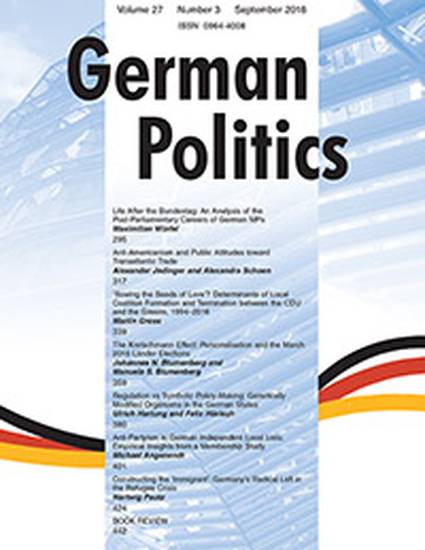
Article
Citizenship and migration policies under Merkel's Grand Coalition
German Politics
(2011)
Abstract
Mindful of Germany's looming demographic deficit and its likely consequences for the national economy, Chancellor Angela Merkel has embraced the fact that Germany is a land of immigration, in stark contrast to other CDU/CSU stalwarts. Assuming power shortly after the enactment of a new Citizenship Law (2000) and the passage of the country's first real immigration cum integration law (2004), Merkel has introduced a pro-active strategy for integrating minorities of migrant descent with the National Integration Plan of 2007; she has done so, in part, by utilising recent EU developments to commit Germany to a socially inclusive approach as a ‘national’ priority. Her holistic strategy owes much to the complex interaction of various socialisation factors: while ‘the Easterner’ and/or ‘the Protestant’ takes the lead in matters of policy substance, ‘the physicist’ seems to prevail with regard to programme design and evaluation. The Chancellor's collaborative leadership style inevitably brings gender back into focus, although the ‘many colours of Merkel’ all remain in the mosaic mix.
Disciplines
Publication Date
January 9, 2011
DOI
10.1080/09644008.2011.606568
Citation Information
Joyce Marie Mushaben. "Citizenship and migration policies under Merkel's Grand Coalition" German Politics Vol. 20 Iss. 3 (2011) p. 376 - 391 Available at: http://works.bepress.com/joyce-mushaben/16/
